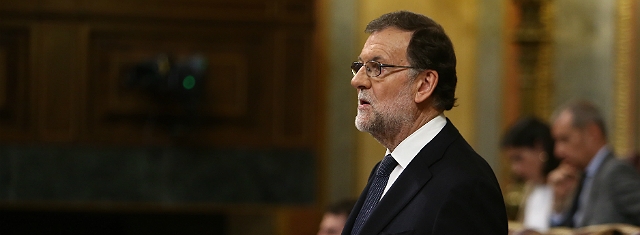Politics
Rajoy was elected for a second term as President of the Spanish Government
Gleaming the constitutional deadline

Rajoy, elected for a second term (Source: Spanish Parliament)
USPA NEWS -
Spain ended Saturday to ten months of political uncertainty with the election of Mariano Rajoy as Prime Minister for a second term. It was the edge of the constitutional deadline for the election of the President and in second vote, by simple majority.
Rajoy won 170 favorable votes against 11 votes against and 68 abstentions. Forty-eight hours earlier, an the first day of the investiture session, Rajoy had achieved the same 170 support but 180 votes against, only six of absolute majority to be elected. This Saturday, however, only needed a simple majority and managed with the support of the centrist party Citizens and canaries nationalists, Navarre and Asturias, and especially thanks to the abstention of the Socialist Party. Sixty-eight Socialist deputies obeyed the mandate of its Federal Committee and abstained, and 15 voted against and disobeyed. The Socialist Party must now decide whether expelled from their parliamentary group wayward Members had threatened the Federal Committee.
King Philip VI, located in Cartagena de Indias (Colombia) participating in the Ibero-American Summit, followed promptly Spanish Parliament's vote and returned to Madrid on Sunday, where he will sign the decree appointing Rajoy as Prime Minister. Rajoy sworn in office on Monday and, as announced, he will announce his new Government next Thursday. After being sworn in, Rajoy reiterated that he is willing “to negotiate everything, buy no to dismantle what has already been done.“ But Rajoy is aware that the starting legislature requires dialogue and the support of Citizens and Socialist abstention forced to take some of their proposals. In return he asked the support transcends the investiture session and will last throughout the term.
Parliamentary plenary recorded an absence, the former secretary general of the Socialist Party, Pedro Sanchez, who in the morning resigned as deputy for “consistent with my principles.“ Sanchez would not be present at the investiture session not to support the election of Rajoy or disobey the Socialist Federal Committee. He warned, however, that does not leave politics and said that from now work to rebuild the Socialist Party. He accused the management of having caused the break of the party to force the full parliamentary group to refrain, when eleven abstentions for the election of Rajoy was only necessary. The next few months will be crucial for the future of Spanish socialism.
Liability for this article lies with the author, who also holds the copyright. Editorial content from USPA may be quoted on other websites as long as the quote comprises no more than 5% of the entire text, is marked as such and the source is named (via hyperlink).





